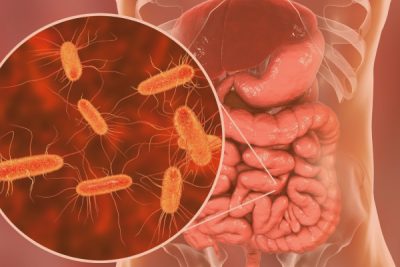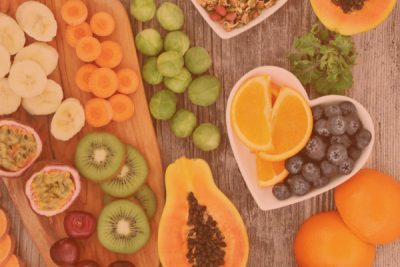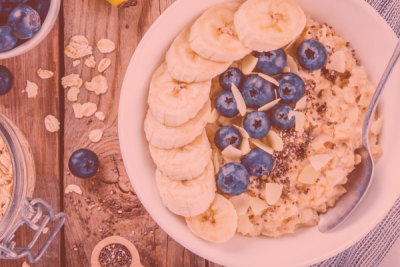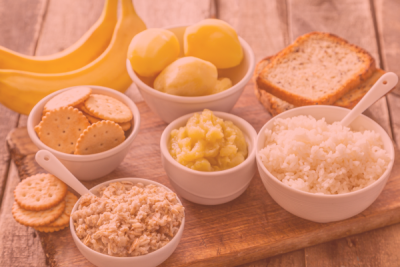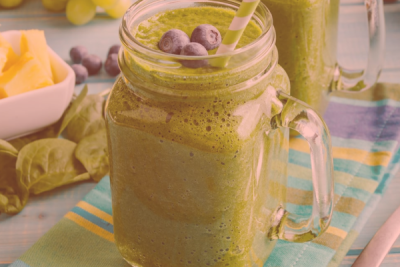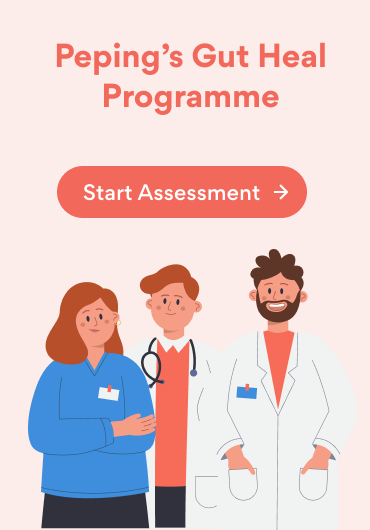Are you feeling bloated lately? Does your stomach feel like it’s about to burst? Don’t worry, you’re not alone. Bloating is a common problem that affects millions of people around the world. While there are many factors that lead to your gassy stomach or other digestive system diseases, one of the most common causes of bloating is the food we eat. In this article, we’ll take a look at 15 trigger foods that cause bloating so you can make more informed choices about what you put on your plate.
Beans and legumes
Beans and legumes, such as rajma, chana and moong dal, are excellent sources of fiber and protein, but they can also cause abdominal bloating. This is because they contain complex sugars called oligosaccharides, which our bodies find challenging to digest properly. When these sugars remain undigested, they can ferment in the large intestine, leading to gas production and bloating.
To minimize the chances of bloating while enjoying your favourite home made recipes like rajma, chana or dal chawal, here are a few tips:
- Do not overeat! We know your love for dal chawal is real, but you MUST consume your favourite dals in moderation to reduce the risk of bloating.
- Don’t forget to soak your beans/legumes for a long time(preferably several hours). The soaking process helps break down some of the complex sugars, making them easier to digest.
- Cook dal, chana, rajma and other beans thoroughly until they become soft and tender(check for a mushy texture). Proper cooking breaks down the complex sugars further, making them more digestible. You can also add a pinch of hing or ajwain while cooking, as they are known to aid in digestion and reduce gas formation. Additionally, cumin and fennel seeds are great for digestion, ensure you add them to your recipe!
- To minimize bloating, pair your beans and legumes with other foods that can aid in digestion. For example, you can prepare a wholesome dal with a wide variety of lentils, leaves like spinach/methi or spices like ginger, that are known to do wonders to your digestive system. A lesser known tip is, to grate some amla into the cooker before boiling your dal. Amla is rich in Vitamin C, improves immunity and is known to curb stomach issues. Plus, it adds a tangy flavour to your dal too! However, if you like your dal as is, you can consider adding other digestion aids to your meal, such as salads/sides of veggies like cucumber or papaya.
Broccoli and Cauliflower
While these veggies are great sources of vitamins and minerals, they can cause bloating due to their high fiber content. Fiber is an essential component of a healthy diet as it promotes regular bowel movements and supports digestive health. However, when consumed in excess or by individuals with sensitive digestive systems, it can lead to bloating.
The reason behind this is that fiber is not completely broken down and absorbed by the body. Instead, it passes through the digestive tract relatively intact, adding bulk to the stool and promoting healthy bowel movements. However, the breakdown of fiber by bacteria in the large intestine produces gas as a byproduct. This gas can accumulate in the digestive system, leading to bloating, discomfort, a gassy stomach and even flatulence.
Pro tip: Eat them in small quantities and ensure you cook them thoroughly.
Dairy Products
Dairy products like milk, cheese, and yogurt are high in lactose, a sugar which many people have difficulty digesting. Lactose intolerance happens when your body doesn’t have enough of an enzyme called lactase which is responsible for breaking down lactose- the sugar found in dairy products. Without lactase, lactose doesn’t get broken down properly and just hangs out in your system.
Now, when you consume dairy products and you’re lactose intolerant, that undigested lactose moves into your large intestine. And guess what? It’s like a party for your gut bacteria! They start having a field day with the lactose and ferment it, and that process produces gases like hydrogen, methane, and carbon dioxide.
And here’s where the fun begins… well, not really. Because those gases can cause some unpleasant side effects. Picture this: bloating, a gassy stomach, and even diarrhea(not the most pleasant experience).
Oh, and let’s not forget the water situation. The undigested lactose in your small intestine attracts water like a magnet, messing with the balance in your system. It’s like a water park, but not the kind you’d want to visit. This imbalance can lead to even more bloating and discomfort!
Now if you’re lactose intolerant, you must be feeling pretty low, huh? But hey, don’t worry because there are a lot of plant-based alternatives like soy, almond or oat milk you can switch to!
Carbonated Drinks
Carbonated drinks like soda and cola are a popular choice for many people, offering a refreshing and fizzy sensation. However, these drinks can contribute to bloating and digestive issues. Let’s explore why and provide some tips for enjoying cool beverages without the risk of bloating:
- Gas Formation: Carbonated drinks contain carbon dioxide gas, which gives them their characteristic fizz. When you consume these beverages, the carbon dioxide gas is released in your stomach, leading to the formation of gas bubbles. These gas bubbles can accumulate and cause bloating and discomfort.
- Increased Swallowing of Air: When drinking carbonated beverages, you often take larger sips or gulp down the drink. This can lead to swallowing more air along with the liquid, contributing to bloating and gas in the digestive system.
- High Sugar Content: Many carbonated drinks contain a significant amount of added sugars. Consuming excessive amounts of sugar can lead to fermentation in the gut, causing gas and bloating.
To enjoy cool drinks without the risk of bloating, try these tasty, yet healthy alternatives:
- Fruity/herby water: Why not up the ante on your daily water consumption by infusing it with fruits, herbs, or vegetables that provide it with flavour without the carbonation? Try adding slices of cucumber, lemon, mint leaves, or berries to a pitcher of water and let it sit for a few hours in the refrigerator.
- Herbal Teas: Opt for herbal teas like chamomile, peppermint, or ginger tea, which not only offer a soothing and calming effect but also promote digestion. These beverages are naturally free from carbonation and can be enjoyed hot or cold.
- Homemade Fruit Juice: Prepare your own fresh fruit juices by blending or juicing your favorite fruits. Orange, mosambi, watermelon and muskmelon are great summer options that are also healthy and tasty!
- Coconut Water: Coconut water is a refreshing and natural electrolyte-rich drink that can help replenish fluids and provide a burst of hydration without the carbonation. It’s a great alternative to sugary sports drinks and soda.
Pro tip: Take a morning/evening stroll to your nearest coconut vendor to get some activity during the day while staying hydrated!
Apples and Pears
While apples and pears are great sources of fiber and antioxidants, they are high in fructose which can lead to a gassy stomach and cause abdominal bloating.
Onions
Onions are a common ingredient in many dishes, but can also cause bloating due to the high levels of fructans they contain.
Cabbage
Like broccoli and other cruciferous vegetables, cabbage too contains raffinose, a complex sugar that can be difficult for some people to digest. If you’re prone to bloating, try steaming cabbage before eating to help break down the raffinose.
Garlic
Garlic is a great source of flavor and nutrients, but it can cause bloating and painful stomach gas due to the sulfur compounds it contains.
Artificial Sweeteners
Artificial sweeteners like aspartame are used in low-calorie or sugar-free products, but they can cause bloating and gas due to the way our bodies digest them. If you’re looking for alternatives to artificial sweeteners that won’t cause bloating, there are several natural options available:
- Stevia: Stevia is a plant-based sweetener derived from the leaves of the Stevia rebaudiana plant. It is known for its intense sweetness without adding calories or carbohydrates. Stevia is available in various forms, including powdered extracts and liquid drops. It can be used in beverages, baked goods, and other recipes as a sugar substitute.
- Honey: Raw honey is a natural sweetener that offers a range of health benefits. While it contains natural sugars, it also contains enzymes and antioxidants that can support overall well-being. Raw honey can be used in moderation to add sweetness to beverages, dressings, and baked goods. Keep in mind that heating honey can diminish some of its beneficial properties, so it’s best to add it to recipes after cooking.
- Maple Syrup: Maple syrup is derived from the sap of maple trees and is a popular natural sweetener. It contains essential minerals and antioxidants, making it a healthier choice compared to refined sugar. Maple syrup can be used as a topping for pancakes, waffles, or oatmeal, and it can also be used in baking and cooking.
- Coconut Sugar: Coconut sugar is made from the sap of coconut palm trees. It has a lower glycemic index compared to regular sugar, meaning it has a less significant impact on blood sugar levels. Coconut sugar can be used as a one-to-one replacement for granulated sugar in various recipes, including beverages, desserts, and sauces.
These natural sweeteners can be used as alternatives to artificial sweeteners while avoiding the risk of bloating. However, it’s important to remember that even natural sweeteners should be consumed in moderation, as excessive intake of any sweetener can lead to digestive discomfort. Experiment with these options and find the ones that work best for you and your taste preferences.
Fatty Foods
Fatty foods like fried and fast food can cause bloating and discomfort due to the way they’re digested. To reduce the risk of gastrointestinal disease, it’s best to drastically cut these foods out of your diet.
Chewing Gum
Chewing gum is a common habit for many people, whether as a means to freshen breath or to satisfy the urge to chew on something. However, it’s important to note that chewing gum can contribute to bloating and discomfort, especially when done excessively. Here’s why chewing gum can cause bloating:
- Swallowing Air: One of the main reasons chewing gum can lead to bloating is because it can cause you to swallow air. When you chew gum, you naturally take in small amounts of air along with each chew. This air can accumulate in your digestive system and contribute to bloating.
- Increased Saliva Production: Chewing gum stimulates the production of saliva in your mouth. While saliva is essential for proper digestion, excessive saliva can lead to swallowing more frequently, which can introduce more air into your digestive tract.
- Release of Digestive Enzymes: Chewing gum signals to your body that you’re about to eat, prompting the release of digestive enzymes in preparation for digestion. However, if you’re not actually consuming any food, the release of these enzymes can cause your stomach to produce excess acid, leading to bloating and discomfort.
- Artificial Sweeteners: Many chewing gums contain artificial sweeteners like sorbitol, xylitol, or mannitol to provide sweetness without added sugar. These sweeteners are known as sugar alcohols and can have a laxative effect when consumed in large amounts. This laxative effect can contribute to bloating, gas, and even diarrhea.
- Increased Jaw Movement: Chewing gum requires repetitive jaw movement, which can stimulate the muscles in your face and jaw. This continuous movement can also lead to the swallowing of excess air, adding to the potential for bloating.
Pro tip: If freshening your breath is your main concern, consider alternative methods like using sugar-free mints, rinsing with mouthwash, or practicing good oral hygiene.
Spicy Foods
Spicy foods like chillies, peppers and hot sauces can cause bloating and discomfort due to the way they stimulate the digestive system. To reduce the risk of bloating, pair them with other foods to help slow down digestion.
Wheat
Wheat contains gluten, a protein that can be difficult for some people to digest. This can cause bloating, along with other symptoms like diarrhea and abdominal pain. If you suspect you have a gluten sensitivity, avoid wheat and other gluten-containing foods.
Alcohol
Alcohol can cause bloating and discomfort because it can lead to dehydration and digestive issues.When consumed, alcohol undergoes a complex metabolic process that can lead to various digestive issues.
Here’s how alcohol can cause bloating and digestive problems:
- Dehydration: When we drink alcohol, it acts as a diuretic, increasing urine production and potentially causing dehydration. This lack of proper hydration can throw off the normal functioning of our digestive system, resulting in constipation and bloating.
- Irritation of the Gastrointestinal Tract: Alcohol has a knack for irritating the lining of both our stomach and intestines. This irritation can trigger inflammation and disrupt the usual digestive processes, leading to bloating, stomach discomfort, and in some cases, even diarrhea.
- Increased Stomach Acid Production: Alcohol has the ability to stimulate the production of stomach acid, which can give rise to acid reflux and heartburn. These unpleasant conditions often come with their own set of symptoms, including bloating, belching, and that uncomfortable feeling of fullness.
- Sluggish Digestive Motility: Alcohol has a tendency to slow down the movement of food through our digestive tract. This delayed digestion can result in the build-up of gas, leading to—you guessed it—bloating.
- Fermentation in the Gut: Once alcohol reaches the intestines, it undergoes fermentation by the bacteria residing there. Unfortunately, this fermentation process can produce excessive gas, contributing to bloating and flatulence.
- Disruption of Gut Microbiota: The consumption of alcohol can disrupt the delicate balance of beneficial bacteria in our gut. This disruption, known as dysbiosis, can pave the way for the overgrowth of harmful bacteria, potentially giving rise to digestive issues, including bloating.
Barley and Rye
While whole grains like barley and rye are a good source of fiber and nutrients, they contain a type of carbohydrate called fructans that can cause bloating and gas. If you experience bloating after consuming whole grains, try switching to gluten-free options that can still provide similar nutritional benefits. Here are a few examples:
- Quinoa: Quinoa is a versatile grain-like seed that is naturally gluten-free and rich in protein, fiber, and essential nutrients. It has a slightly nutty flavor and a light, fluffy texture, making it a great substitute for barley and rye in various recipes.
- Rice: Rice is a staple grain that is naturally gluten-free and widely available. Whether it’s white rice, brown rice, wild rice, or specialty varieties like black rice or red rice, they all offer a neutral taste and a satisfying texture.
- Buckwheat: Despite its name, buckwheat is not related to wheat and is naturally gluten-free. It is a nutrient-rich seed with a distinctive earthy flavor.
- Millet: Millet is a small grain that is gluten-free and has a mild, slightly nutty flavor.
- Gluten-Free Oats: Oats themselves do not contain gluten, but they are often processed in facilities that handle gluten-containing grains, leading to potential cross-contamination. However, certified gluten-free oats are available and can be used as a substitute for barley and rye in oatmeal, granola, and baked goods.
Now that we’ve identified the top 15 culprits, what can you do about it? There are many home remedies for bloating, including exercise, peppermint tea, and probiotics. Exercise helps stimulate the bowels, peppermint tea has natural anti-spasmodic properties that soothe the digestive tract and probiotics can help restore the balance of good bacteria in the gut, improving digestion and reducing bloating.
Well, there you have it folks! While bloating is a common issue that we ALL experience, it’s nothing to be ashamed of. However, it’s definitely something we’d rather live without. So, the next time you find yourself feeling bloated, take a closer look at what you’ve been eating. Maybe cut back on those gassy culprits like beans/soda, or try swapping your wheat-based bread for a gluten-free option. And don’t forget to stay active and hydrated! In the end, we all deserve to feel our best, and that includes having a happy, pain-free tummy. So, let’s make some simple changes and bid farewell to that bloated belly!



